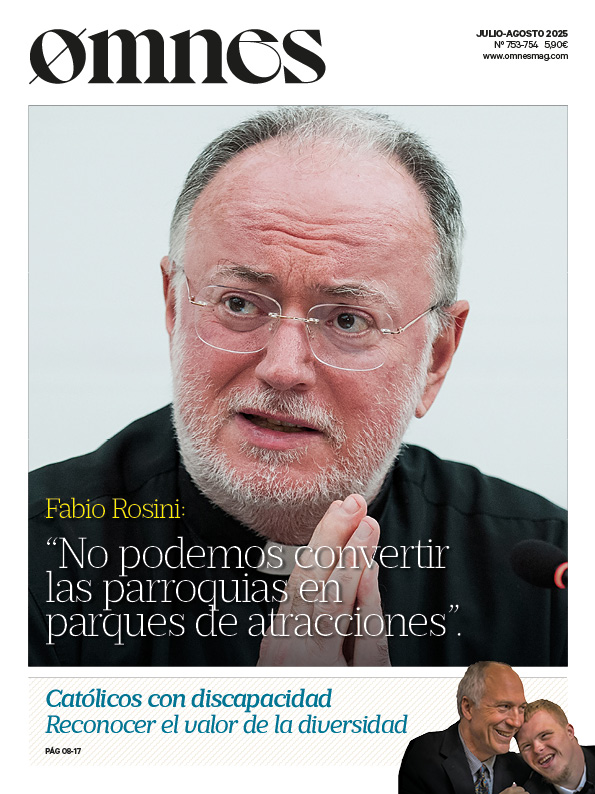During the liturgical season of Advent, three biblical figures stand out in a special way: the prophet IsaiahJohn the Baptist and Mary of Nazareth. In this reflection, we will focus on the figure of Isaiah. Since ancient times, a universal tradition has reserved many of the first readings of this time for his words. This is perhaps because, in him, the great messianic hope resounds with a unique force, offering a perennial proclamation of salvation for humanity of all times.
As we contemplate the readings for this year's Advent season (cycle C), we will notice the abundant presence of Isaiah. Although it may seem ambitious, I propose to select, for each week of Advent, one of the texts offered to us, together with a key verse. In this way, I hope to capture the essence of the Advent message and facilitate a spiritual journey that brings us closer to its heart.
First week of Advent
Isaiah's presence in this first week of Advent is especially significant. Each day we find one of his messianic prophecies:
- Monday: Isaiah 2, 1-5 - Prophecy about universal peace and the conversion of weapons into instruments of work.
- Tuesday: Isaiah 11:1-10 - Description of the Messiah who will reign with wisdom and establish a kingdom of peace.
- Wednesday: Isaiah 25, 6-10a - Announcement of a banquet for all nations and victory over death.
- Thursday: Isaiah 26, 1-6 - Vision of a strong city inhabited by a just people, symbol of peace and salvation.
- Friday: Isaiah 29, 17-24 - Promise of restoration, liberation for the oppressed and spiritual conversion.
- Saturday: Isaiah 30:19-21, 23-26 - Expression of divine compassion, guidance and promise of abundance and healing.
Prophecy and key verse (1st week)
Among the texts of Isaiah that we read in this first week, I consider the vision of Isaiah 11:1-10 to be the most significant, and these are the key verses: "But a branch shall spring up from the stump of Jesse, and a shoot shall grow out of his root. The spirit of the Lord shall rest upon him, the spirit of wisdom and understanding, the spirit of counsel and might, the spirit of knowledge and of the fear of the Lord" (Is 11:1-2).
Arguments for election
- This passage is fundamental in messianic theology. Isaiah 11:1-10 anticipates the coming of the Messiah as a descendant of Jesse, father of David, thus linking with the Davidic promise of an eternal kingdom (2 Samuel 7:16). This lineage is fulfilled in Jesus, the "offspring" of the house of David, as the genealogies of Matthew 1:1-17 and Luke 3:23-38 demonstrate.
- Isaiah describes the Messiah not only as king, but also as restorer of justice and peace, a hope that marks the Advent. Universal peace, represented in the coexistence of the animals (Is 11:6-9), points to a kingdom without violence that will be established at the coming of Christ, both in his first and in his future glorious coming.
- Isaiah 11:2 announces that the Spirit of the Lord will rest upon him: "the spirit of wisdom and understanding, the spirit of counsel and might, the spirit of knowledge and of the fear of the Lord", a clear anticipation of Jesus' baptism in the Jordan, where the Holy Spirit descends upon him (Matthew 3:16-17).
- Isaiah 11:10 foresees that the "offspring of Jesse" will be a sign to the nations and that all peoples will flock to him. This message of universal hope is central to Advent, which celebrates the coming of Christ as the Savior of all humanity: Jesus is the light that enlightens the nations (Luke 2:32).
In conclusion, Isaiah 11:1-10 synthesizes the heart of the messianic hope of the first week of Advent: the coming of a just king, filled with the Spirit of God, who will bring peace and reconciliation to the world. The key verses, Isaiah 11:1-2, symbolize this promise of renewal and restoration in the figure of the Messiah, whom Christians recognize in Jesus Christ, in his self-giving on the cross and in his glorious return.
Doctor of Canon Law








